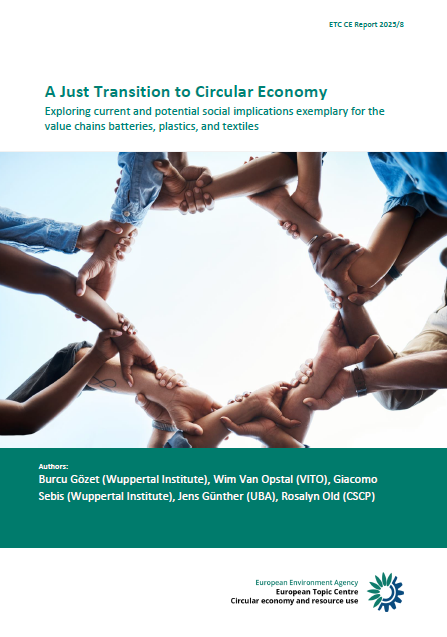ETC CE Report 2025 highlights social justice in the circular economy
The new ETC CE Report 2025 makes it clear that a sustainable circular economy can only succeed if ecological goals are considered alongside social justice. While the focus has often been on resource efficiency, recycling rates, and material cycles, the study now specifically highlights the social impacts of global value chains, particularly in the areas of textiles, plastics, and batteries.

The analysis shows that many of the challenges arise in countries in the Global South, where informal workers labor under precarious conditions, enjoy little social protection, and are excluded from political decision-making processes. Although they make an important contribution to the recovery and recycling of materials, their role remains largely unrecognized in public and political perception.
The report therefore calls for a just transition based on three dimensions: distributive justice, procedural justice, and recognition justice. In concrete terms, this means a fair distribution of opportunities and burdens, transparent and inclusive decision-making processes, and targeted support and visibility for disadvantaged groups.
Available online at: https://www.eionet.europa.eu/etcs/etc-ce/products/etc-ce-report-2025-8-a-just-transition-to-circular-economy
The study was published by the European Topic Centre Circular Economy (ETC CE), which provides scientifically sound impetus for a socially just transition to a circular economy on behalf of the European Environment Agency.